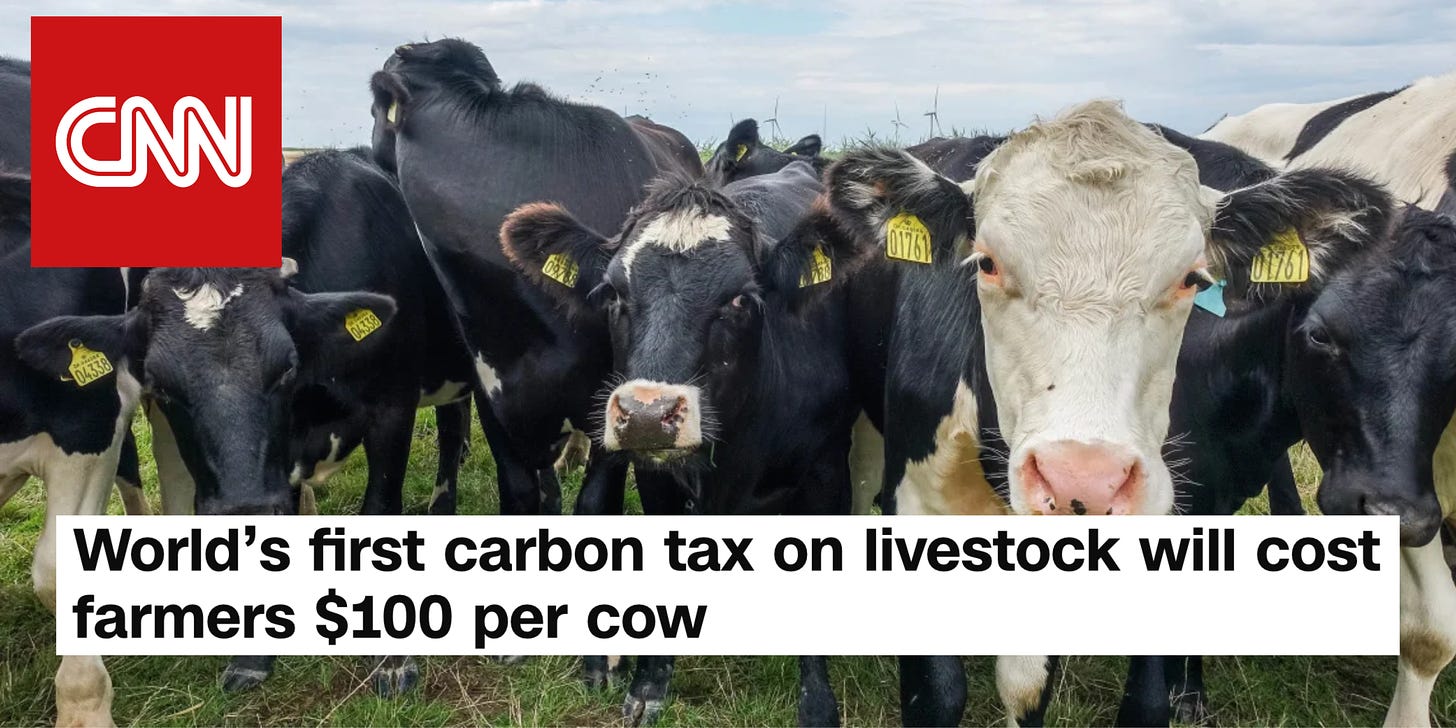Storge, Regret, & Catharsis
Yesterday was my late grandmother’s birthday. I’d like to share with you all a short piece I just wrote about my grandmothers, death, regret, and Joan Didion’s The Year of Magical Thinking for my personal newsletter postcreature/predirt. Read it below.
Denmark’s Indiscriminate Taxation of Livestock Farmers
Some of you may have heard about a new carbon tax that is being proposed to be levied against livestock farmers in Denmark. This “carbon tax” on livestock is the first of its kind, and is a measure that is seemingly aimed to support the “green transition of the industry” in typical bureaucratic opaqueness.
There’s a lot of interesting things to consider when you hear news of things like this. Firstly, that there will be no CO2 mitigation whatsoever with a tax like this — it is merely an example of a state collecting capital from its citizenry for use at a different time, supposedly for initiatives that will produce less CO2, but that remains to be seen.
Secondly, it’s important to remember that this tax is being levied indiscriminately, so even farmers who are using holistic management or other agroecological methods to heal landscapes with livestock will also be taxed. As Bobby Gill of the Savory Institute explained, if the goal was actually to reduce CO2 emissions, Denmark would create a “sliding scale” for the tax whereby “regenerative farmers who are improving soil health” would not be subject to the same taxation as conventional, factory farmers.
If anything, subsidies should be given to farmers who are trying to transition to better management, but globally we’ve seen that that isn’t the case, largely because of a reductionistic worldview adopted by policy makers and a fixation on carbon as the most important metric for climate change.
So much of these conversations wrest on the idea that carbon (or in this case, carbon equivalents, such as methane) are the most relevant measures when we’re talking about ecosystem function and climate change. Even if it was, if CO2 reduction was the actual goal, it wouldn’t make sense to tax Danish producers, rather it would make more sense to increase tariffs on imported, industrial food and incentivize (rather than penalize) farmers to adopt practices that are better for ecosystem function, particularly increasing the functionality of the water cycle, which is one of the most important factors when it comes to global heating.
Most of our landscapes are degraded to the point where rainfall is ineffective and runs off, leading to less photosynthesis; less healthy rivers, streams, and lakes; and less healthily regulated microclimates. This process leads to desertification and loss of life on land, which leads to further ineffective rainfall, runoff, erosion — all processes that lead to bare ground and increased temperatures. Due to carbon fixation, this is often left of out policies that aim to mitigate climate change.
It is easier to view climate change as a technical problem that can be solved by fixating on one maladaptive component, as if the earth and its living systems are mere machinery, than to understand that climate change, ecological destruction, ecosystem dysfunction, and all other catastrophic crises we face are far more likely, at root, a problem of worldviews than mere method.
We’ve had a busy week and have been tied up with personal matters, so there won’t be anything from Jake this week! But stay tuned for a new podcast this week, and next week’s newsletter.
If you’d like to support the project and gain access to future full podcasts, essays, and videos without ads, please consider becoming a paid subscriber or joining us on Patreon for as little as $5 a month.







